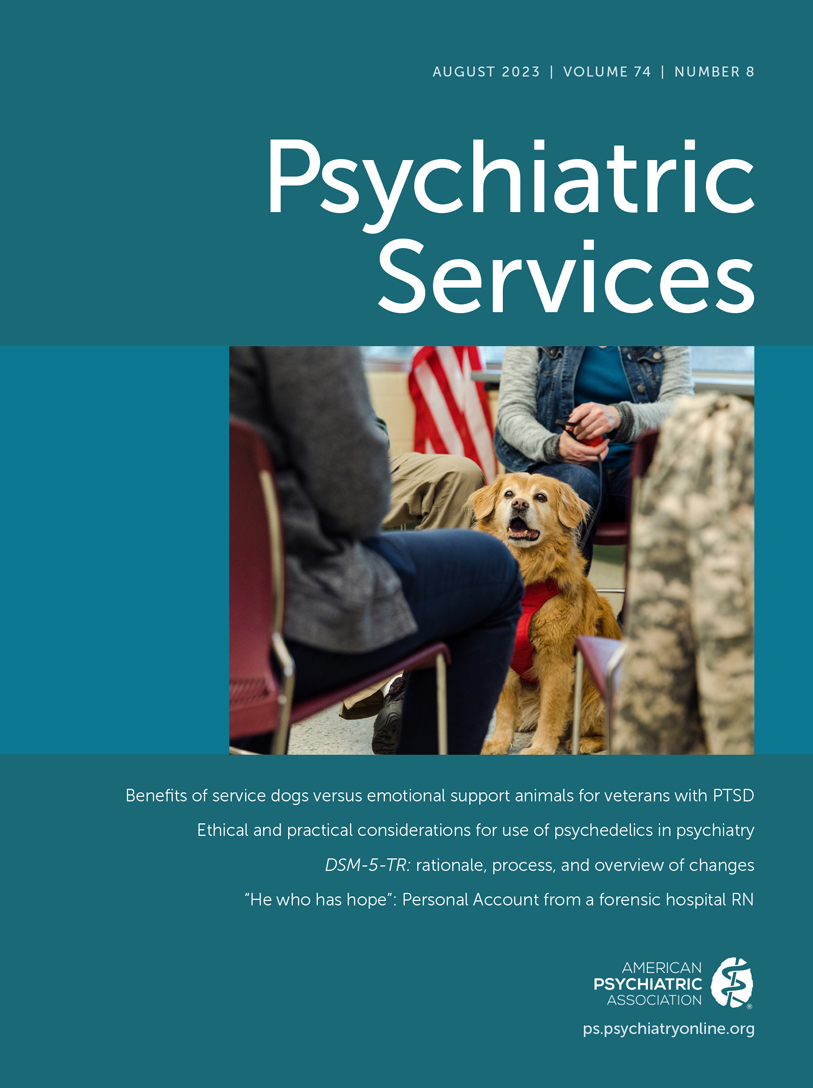Therapeutic and Economic Benefits of Service Dogs Versus Emotional Support Dogs for Veterans With PTSD
Abstract
Objective:
This work aimed to assess the therapeutic and economic benefits of service dogs versus emotional support dogs for veterans with posttraumatic stress disorder (PTSD).
Methods:
Veterans with PTSD (N=227) participating in a multicenter trial were randomly assigned to receive a service or emotional support dog; 181 veterans received a dog and were followed up for 18 months. Primary outcomes included overall functioning (assessed with World Health Organization Disability Assessment Scale II [WHODAS 2.0]) and quality of life (Veterans RAND 12-Item Health Survey [VR-12]). Secondary outcomes included PTSD symptoms (PTSD Checklist for DSM-5), suicidal ideation, depression, sleep quality, health care costs and utilization, medication adherence, employment, and productivity.
Results:
Participants paired with a dog had a mean±SD age of 50.6±13.6 years (range 22–79), and most were male (80%), White (66%), and non-Hispanic (91%). Adjusted linear mixed repeated-measures models indicated no difference between the two groups on WHODAS 2.0 or VR-12 scores. Participants with service dogs had a 3.7-point greater reduction in PTSD symptoms versus participants with emotional support dogs (p=0.036). No reduced health care utilization or cost was associated with receiving a service dog. Veterans with service dogs had an increase of 10 percentage points in antidepressant adherence compared with those with emotional support dogs (p<0.01).
Conclusions:
Both groups appeared to benefit from having a service or emotional support dog. No significant differences in improved functioning or quality of life were observed between the groups. Those in the service dog group had a greater reduction in PTSD symptoms and better antidepressant adherence, improvements that should be explored further.
Access content
To read the fulltext, please use one of the options below to sign in or purchase access.- Personal login
- Institutional Login
- Sign in via OpenAthens
- Register for access
-
Please login/register if you wish to pair your device and check access availability.
Not a subscriber?
PsychiatryOnline subscription options offer access to the DSM-5 library, books, journals, CME, and patient resources. This all-in-one virtual library provides psychiatrists and mental health professionals with key resources for diagnosis, treatment, research, and professional development.
Need more help? PsychiatryOnline Customer Service may be reached by emailing [email protected] or by calling 800-368-5777 (in the U.S.) or 703-907-7322 (outside the U.S.).



